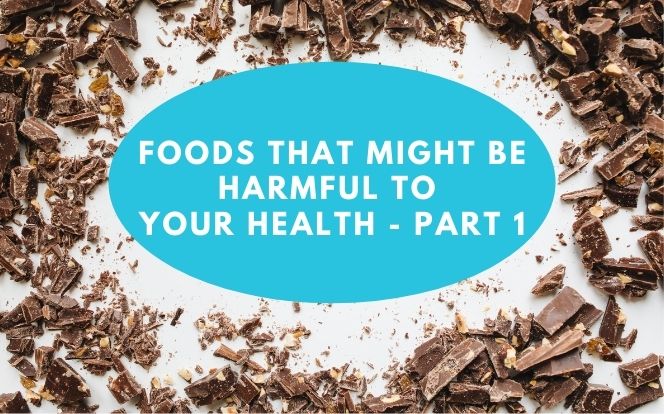Diet is very subjective, and how people react to the food that we eat is determined by many factors. Genetics, epigenetics, environment, gastrointestinal system functionality, immune system health, and your microbiome all influence how reactive you are to the food that you consumed foods. One person might digest something, have little to no issues, and extract/utilize the ingested item’s nutrients. Someone else might ingest the same item, and it causes them bloating, abdominal pain, migraines, and diarrhea. There are a few common foods that people might be regularly ingesting that negatively effects their health. Cocoa powder (chocolate) is such food that can be healthy for some in moderation but may also worsen health issues for other people.
Cocoa (Chocolate)
I do not know anyone who does not love chocolate unless they are allergic to it. I know supposedly some people do not love chocolate. However, for some, chocolate, when ingested, can cause health issues. Cocoa beans are fermented to give chocolate its rich flavor by yeast and lactic acid-producing bacteria. The beans are later cleaned, roasted, and processed into cocoa powder and, in many cases, eventually become a favorite treat, chocolate. Many fermented foods contain elevated histamine levels produced by the fermentation process; it is debated whether cocoa powder contains histamine or compounds in cocoa powder liberate histamine through mast cell destabilization, increasing your histamine levels. Many people suffering from histamine intolerance has elevated histamine health issues (asthma, allergic reactions, sinusitis, migraines, insomnia, anxiety, hives, itching) ingesting cocoa powder or products containing cocoa powder. Finally, chocolate contains salicylates (derivatives of salicylic acid) so people who are sensitive to salicylates should react to chocolate.1 2 3 4 5
Cocoa powder worsens reflux for many people. Cocoa powder and chocolate also contain the xanthine central nervous system stimulant caffeine, which some people are sensitive to caffeine ingestion. People sensitive to caffeine may have frequent urination, migraines, restlessness, anxiety, tachycardia, and insomnia when they ingest caffeine. One dark chocolate bar contains around seventy milligrams of caffeine. Cocoa powder also contains extremely elevated levels of dietary oxalates, so people with poor oxalate metabolism should avoid any food containing cocoa powder. Cocoa powder is also high in thiols (complex sulfur groups). Some people with sulfur metabolism issues or hydrogen sulfide dysbiosis might have issues ingesting cocoa powder containing products.6 7 8 9
Cocoa butter (the fat extracted from the cocoa bean) does not contain any histamine, oxalates, or thiols, so people with oxalate or histamine metabolism issues might be able to tolerate a high-quality white chocolate bar on a special occasion if they can metabolize dairy and sugar well (sorry, dairy contains thiols that some people with hydrogen sulfide dysbiosis may react to). If you are lactose intolerant, you may have issues with milk or white chocolate because of animal dairy’s inclusion in the chocolate product. Taking a lactase enzyme at the start of a meal before ingesting dairy if you have lactose intolerance may decrease your symptoms and allow you to ingest lactose-containing foods. Dark chocolate can be low FODMAP if there are low quantities of sugar in any of your favorite dark chocolate bars. Cocoa powder is considered a low FODMAP food, up to two to four teaspoons of cocoa powder or five squares of dark chocolate!10 11 12 13
Finally, just because some people cannot tolerate cocoa powder and chocolate ingestion does not mean that ingestion of organic chocolate for those that can tolerate it is not healthy in moderation; it likely is! There are numerous studies the document the positive health benefits of moderate cocoa ingestion. From improved cardiovascular and neurological health to reduced risk for diabetes, anti-inflammatory effects, and positive overall effects to one’s gastrointestinal microbiome from cocoa ingestion. However, few have wondered if some of the positive studies of cocoa ingestion are funded by the cocoa industry, but I digress. For those that can tolerate its ingestion, moderate organic cocoa consumption (once or twice weekly) I believe it is beneficial to one’s overall health and well being. Chocolate is a delectable food. What else can I say?14 15 16 17 18 19
- https://www.scienceofcooking.com/chocolate/how-is-chocolate-made.htm ↩
- https://www.ncbi.nlm.nih.gov/pmc/articles/PMC5881244/ ↩
- https://healinghistamine.com/blog/make-these-5-surprising-high-histamine-foods-work-for-histamine-intolerance/ ↩
- https://pubmed.ncbi.nlm.nih.gov/17490952/ ↩
- https://www.amymyersmd.com/article/histamine-intolerance/ ↩
- https://pubmed.ncbi.nlm.nih.gov/29243615/ ↩
- https://www.hsph.harvard.edu/nutritionsource/food-features/dark-chocolate/ ↩
- https://www.sciencedirect.com/science/article/abs/pii/S0889157511000822 ↩
- https://www.mayoclinic.org/healthy-lifestyle/nutrition-and-healthy-eating/in-depth/caffeine/art-20045678 ↩
- https://www.monashfodmap.com/blog/happy-easter-low-fodmappers/ ↩
- https://healinghistamine.com/blog/make-these-5-surprising-high-histamine-foods-work-for-histamine-intolerance/ ↩
- https://www.nhs.uk/conditions/lactose-intolerance/treatment/ ↩
- https://www.monashfodmap.com/blog/happy-easter-low-fodmappers/ ↩
- https://www.ncbi.nlm.nih.gov/pmc/articles/PMC4696435/ ↩
- https://www.washingtonpost.com/health/is-chocolate-healthy-alas-the-answer-isnt-sweet-heres-why/2019/10/25/7933aeec-e6e0-11e9-a331-2df12d56a80b_story.html ↩
- https://www.google.com/url?sa=t&rct=j&q=&esrc=s&source=web&cd=&ved=2ahUKEwjXgdHMqOXuAhVEhOAKHRuKA-QQFjABegQIBBAC&url=https%3A%2F%2Fwww.mdpi.com%2F2072-6643%2F12%2F7%2F1908%2Fpdf&usg=AOvVaw1ejyx9G9WE9OatcOvlUbGD ↩
- https://www.ncbi.nlm.nih.gov/pmc/articles/PMC3566565/ ↩
- https://heart.bmj.com/content/101/16/1279 ↩
- https://journals.sagepub.com/doi/abs/10.1177/2047487320936787?journalCode=cprc ↩






